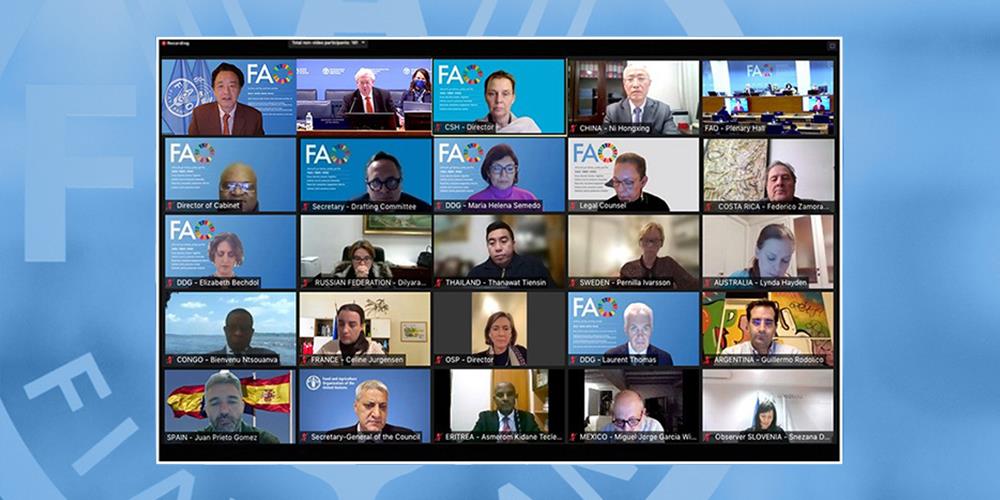Director-General closes 168th Council, calls for extraordinary efforts leading to extraordinary results

Rome – The 168th Session of the FAO Council ended today with Members approving documents to help guide the Organization’s future work.
“All your debates and thought-provoking ideas have been appreciated,” Director-General QU Dongyu said in closing remarks after six days of meetings.
The Council is the executive organ of the FAO Conference. It has 49 Members in between Conference, which bring all 194 FAO Members together every two years. As the Conference’s executive organ, the Council deals with thematic and institutional matters.
Council Members welcomed the designation of the Director-General’s signature Hand-in-Hand Initiative as a Priority Program Area under FAO’s Strategic Framework 2022-2031, noting that the initiative offers Members more effective and efficient support to enable more dynamic, scaled-up programming of country level actions in collaboration with other relevant partners.
The week’s discussions were especially focused on two new FAO thematic strategies under development, one on Climate Change, and the other on Science and Innovation.
They “highlighted common concerns with compromise,” Qu said, noting that the session was the first to be coordinated by the new Independent Chair of the Council, Hans Hoogeveen.
“We need to move from wording to action,” the Director-General emphasized, calling for 2022 to be “marked by extraordinary efforts leading to extraordinary results.”
Thematic strategies
Council Members also welcomed the initiative to develop FAO’s first-ever Science and Innovation Strategy, with the overall aim of strengthening the Organization’s capacities to deliver on the Sustainable Development Goals and other objectives of the Strategic Framework.
The new strategy, currently undergoing consultations and revisions, is expected to be submitted at the FAO Council in June 2022. It will be based on the “five Ps” - People, Planet, Prosperity, Peace and Partnership – and enhance core FAO functions such as enabling access to data, normative standard setting, knowledge sharing, advocacy and policy dialogue.
Its thrust is to enhance the use of science and innovation, including indigenous knowledge, to foster more efficient, inclusive, resilient and sustainable agrifood systems, with digital technologies – and the need to close the digital divide – as major focus areas. To bolster its prospects, FAO has appointed its first-ever Chief Scientist and created a new Office for Innovation, while pushing science-based inputs and data through programs such as the Hand-in-Hand Initiative.
Council Members were also updated on the development of a new Strategy on Climate Change, which will build on a previous plan, mainstream climate action across all FAO’s areas of work, and aim to take the Organization’s climate action beyond business as usual. Once approved in 2022, it will support a five-year action plan.
The draft vision for the strategy is currently: “Transformed agri-food systems are climate-resilient and adaptive to the impacts of climate change, contribute to low-carbon economies while providing nutritious food for healthy diets, feed, fibre and fuel through innovative solutions, for present and future generations”.
FAO Strategic Framework 2022-2031
